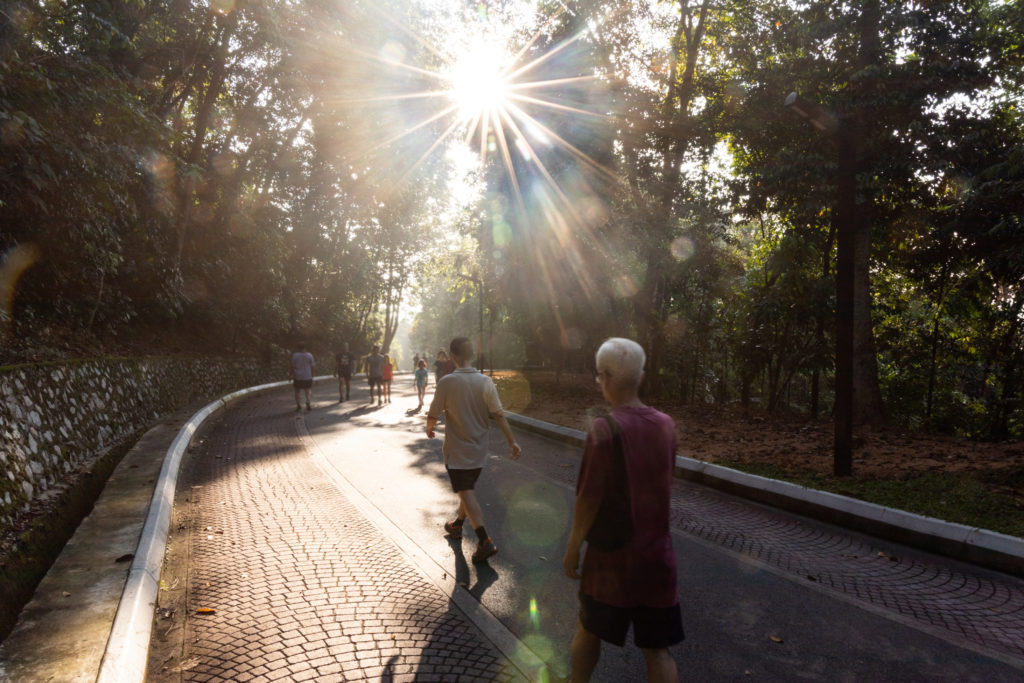Quick Hits
Daily brief research updates from the cognitive sciences

In the quest for fitness and health there has been a focus on exercise as a key factor – we all know that. And recommendations are normally about increasing heart rates over long periods of time or possible also shorter more intensive sessions. These have also been shown to improve cognitive function – making your brain more effective.
However, the route to greater health may be easier – or more specifically of enhanced brain function. The effects of light activity in the focus on more intensive and extensive exercise has been largely underestimated – and is considered by some to be a key factor in public health. Our engagement in light activity has over the decades decreased significantly – see my previous article here.
In this research just out Ryuta Kuwamizu and colleagues of the University of Tsukuba in Japan conducted a simple but effective experiment. In this participants did 10 mins of easy exercise – in this case light pedalling while seated. During this they measured pupil dilation because this is also related to brain function specifically executive function. Executive function refers to harder cognitive tasks such as decision making, short-term, memory, calculation, and analysis – basically what many consider the heavy lifting of the brain in our daily lives.
Yes, and indeed just this short light exercise intervention increased delation of the pupil and this was directly related to improved executive functions which was determined though scanning the frontal part of the brain where our executive functions reside with a technique called near infrared spectroscopy.
This therefore points to, as I have mentioned in other places, the significant benefits of short bouts of light exercise on improved brain function – something of particular interest to businesses no doubt. I have long since promoted the idea of regular short walking breaks – this shows again why. For a review of the benefits of walking see this article here).
Not that it has to be at work – a walk or light exercise will improve your brain function – and that is good for all of us, all the time.

Andy Habermacher
Andy is author of leading brains Review, Neuroleadership, and multiple other books. He has been intensively involved in writing and research into neuroleadership and is considered one of Europe’s leading experts. He is also a well-known public speaker, speaking on the brain and human behaviour.
Andy is also a masters athlete (middle distance running) and competes regularly at international competitions (and holds a few national records in his age category).
References
Ryuta Kuwamizu, Yudai Yamazaki, Naoki Aoike, Taichi Hiraga, Toshiaki Hata, Michael A. Yassa, Hideaki Soya.
Pupil dynamics during very light exercise predict benefits to prefrontal cognition
NeuroImage, Volume 277, 2023.
https://doi.org/10.1016/j.neuroimage.2023.120244
More Quick Hits
Why Heat Makes Us Sleepy
Imagine if you are working and your stress levels are increasing, and then automatically soothing music is turned on to calm you down. Or alternatively if you are heading towards that after lunch dip of drowsiness and upbeat energetic music is turned on to energise you.
Tracking Mental States Through Your Skin – In Real Time
Imagine if you are working and your stress levels are increasing, and then automatically soothing music is turned on to calm you down. Or alternatively if you are heading towards that after lunch dip of drowsiness and upbeat energetic music is turned on to energise you.
Testosterone Promotes Cuddling
Quick HitsDaily brief research updates from the cognitive sciences es, you read the headline correctly. Testosterone considered the ultimate male hormone and often associated with aggression has had a bad rap. So, is all of this wrong? Well, the...
Online Learning Triggers Different Stress Responses
Quick HitsDaily brief research updates from the cognitive sciences ot so long ago all learning went online – out of necessity. There has been plenty pf research into differences in online learning and in-person learning but this study by Gellisch...
Use It Or Lose It – Mental Activity Reduces Dementia
Quick HitsDaily brief research updates from the cognitive sciences regularly write on which activities reduce risks of cognitive decline (just last week I reported on how your job can protect your mental abilites with age and also doing household...
Why Thinking Makes You Tired
Quick HitsDaily brief research updates from the cognitive sciences e all know that feeling of having engaged in hard cognitive, thinking, tasks, and feeling tired. If it goes on long enough, we may feel mentally fatigued, drained, or even...






